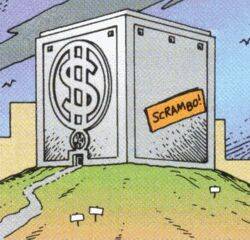Norman
Diamond Member
- Sep 24, 2010
- 31,254
- 15,176
- 1,590
If "the natural rate" of interest is 0%, then the market will take it to 0%. Government pinning a 0% rate isn't natural.
The FED controls interest rates all along the term structure. It boils down to how the FED wants to manage yields. This seems perfectly natural under a floating fx.
The Fed influences rates on the long end. They don't control them.
And the ability to influence the long end is related to investors' confidence in the central bank.
Yeah but they can control any rate they so please. Or, well, they can't force anyone to sell bonds of course, but practically speaking that doesn't matter. They can buy ALL the government debt if they so please at whatever rate they want to. Not saying this is a good idea, but that's the reality.
hmm, I guess this doesn't work upwards though... But they can certainly reduce the rates as much as they want. Of course the fed only operates in the secendary market so technically this isn't all correct, but practically speaking now.
Last edited:

